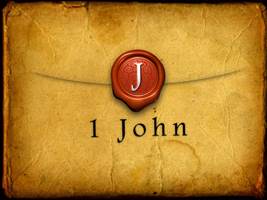The story of the Road to Emmaus lends itself beautifully for us to think about our own journeys of faith; the processes we go through of discovering who Jesus is, wanting to know more about him and when we have that moment of revelation, confessing him as our Lord and Saviour. Here is my sermon for the Third Sunday of Easter 2017, based on Luke 24:13-35
May I speak and may you hear through the grace of our Lord; Father, Son and Holy Spirit. Amen
The story of the Road to Emmaus, one of the most vivid and insightful accounts of Jesus’ resurrection appearances. So often there are stories in the gospels that make you really want to be a fly on the wall, or in this case a fly on the road.
We also need to understand that the journey to Emmaus is both a literal and a spiritual journey. On the one hand it recounts the journey of two of Jesus’ disciples who, after the crucifixion and resurrection of Jesus, walk seven miles from Jerusalem to the village of Emmaus. On the other hand it mirrors the journey that we all take from not knowing or recognising Jesus, to understanding what the bibles say about him, to recognising him for who he is and that he is the reason we are willing declare our faith and can call ourselves Christians.
It’s a journey that we are all on; all of us at different stages, independent of length of time or knowledge and understanding, but like today’s gospel story there are waypoints, crossroads, defining moments. A journey we’ll see that those disciples found didn’t end in the house in Emmaus but began a new voyage of life changing discovery.
Over the last few weeks it has been wonderful to journey with some of our young people and adults as we have explored what it means to be a Christian, the joy of the Gospel and prepared some of them for one of their own defining moments when they will confirm and recognise their faith at the upcoming Deanery Confirmation service. Each of them will have their own story to tell, their own unique journey they’ve travelled to get to that point, their own experience of a relationship with Christ. So what does the story tell us about both their and our own journeys?
Firstly it’s interesting to wonder who those two disciples might have been. Well we are told the name of one of them, Cleopas – a disciple whose name or variant of it some scholars claim has appeared before in other gospels. In John he is mentioned only by association with his wife Mary, one of the women standing at the cross with Jesus’ mother, Mary wife of Clopas. Secondly, it’s generally assumed, rightly or wrongly that the second unnamed disciple is a man. Perhaps it might make sense that Cleopas and Mary, husband and wife, both close disciples of Jesus, were making their way back home together
Of course nobody knows for sure, but it does lend itself to the inclusivity of Jesus’ message to all regardless of gender, race or sexuality. What we do know is that it is Jesus that seeks us in the first instance. On the road, Jesus himself ‘came near to them’ and although the disciples knew who Jesus was, they did not recognise him. They knew a lot about him, they had heard a lot about him and yet they were unable to recognise him when they met him. This could be said to be true for many people, even nowadays; they’ve heard of Jesus and even some of the things that he did, and yet they don’t recognise him or respond to him. They don’t engage in wanting to find out more, despite his presence.
We could also ask why the two disciples were prevented from recognising Jesus. Perhaps God had a purpose in blinding their eyes from reality. It’s not cruelty on God’s part, but by a gradual revelation of himself, Jesus allows them and us to learn that we can trust God’s promises. Remember that the disciples as a whole had been told about these events many times beforehand, but still they had not believed
Maybe it was because events had not happened as expected. Their preconceptions of who Jesus was and what he had come to do had been turned on its head; perhaps they dismissed the whole thing as misplaced hope and trust. When things turn out different to how we expect how often do we give up and admit defeat instead of trying to understand whether there is a reason for it.
It could be that they had too little faith – why didn’t they believe the reports of the women, even when they’d seen the empty tomb for themselves. Or the whole idea of a supernatural event of God raising Jesus from the dead was a concept they couldn’t grasp; had they even considered who Jesus was?
Is this a mistake that’s repeated today? Just because someone knows about Jesus, doesn’t mean they know him. They may have heard about him, read about him, use his name and many claim to know him. But knowing about him and knowing him are two different things
Along our journey there will be others who help us to know more about Jesus, but ultimately it will be Jesus that opens our eyes. For the two disciples on the road he used the things that they would already know about, the scriptures, and how if they believed what the scriptures said about him then they would understand why he came and why he had to suffer. We too today have scripture to help reveal who Jesus is, and we have the double advantage of not only having the Old Testament but the New as well.
When we read and come to know the scriptures better they help to build up our faith, they are a reliable witness to who Jesus really is, and the truth that they contain lead us to a personal faith in Jesus. A personal faith and a personal relationship with Jesus, but it mustn’t stop there. If we personalise Jesus too much he fast becomes God in our own image. The relationship we are called to have is one of fellowship and community. It is not coincidence that it is around a supper table that the disciple’s eyes are opened.
Think how many of the resurrection appearances are associated with table fellowship: the request for something to eat when he appears to all the disciples almost immediately after the two from Emmaus had told their story, or having breakfast on the beach. It was during the intimacy of a shared meal when Jesus broke bread and gave thanks, that the disciples recognised him
When he was at the table with them,
he took bread, blessed and broke it, and gave it to them.
Then their eyes were opened, and they recognized him
Luke 24:30-31
We too through our sharing of communion also come to recognise Christ in the memorial of the bread and wine shared at the supper, which goes on to prompt us to share with others our recognition of his presence. I can vividly remember my own first communion, a real sense of being filled with the Holy Spirit, as the bread was placed in my hands and the wine sipped from the cup. That was my moment of my ‘heart burning within me’ as I acknowledged who Jesus really was and the transformation he was bringing to my life. Like the disciples in Emmaus when we are moved with similar emotions then surely there is only one thing we can do and that is to testify in our lives, actions and words why we are followers of Christ and invite others to join us on that journey.
It would be lovely to see lots of us there at the Confirmation service, not only to support those who are declaring their recognition of Jesus as Lord and Saviour, perhaps publicly for the first time, but to remember that we too are either travelling on a journey toward that decision or recalling the time when we too made that declaration.
We are called to walk together in fellowship and the great thing is that we also have a Saviour who walks alongside us. So we can never walk alone, however hard or tough the journey. Sometimes we may try to run on ahead, at other times we trail behind, but somehow eventually we learn to walk at God’s speed, and God continues to give glimpses of himself across our lives; enough to sustain us and keep our faith strong on the journey.
Amen
















